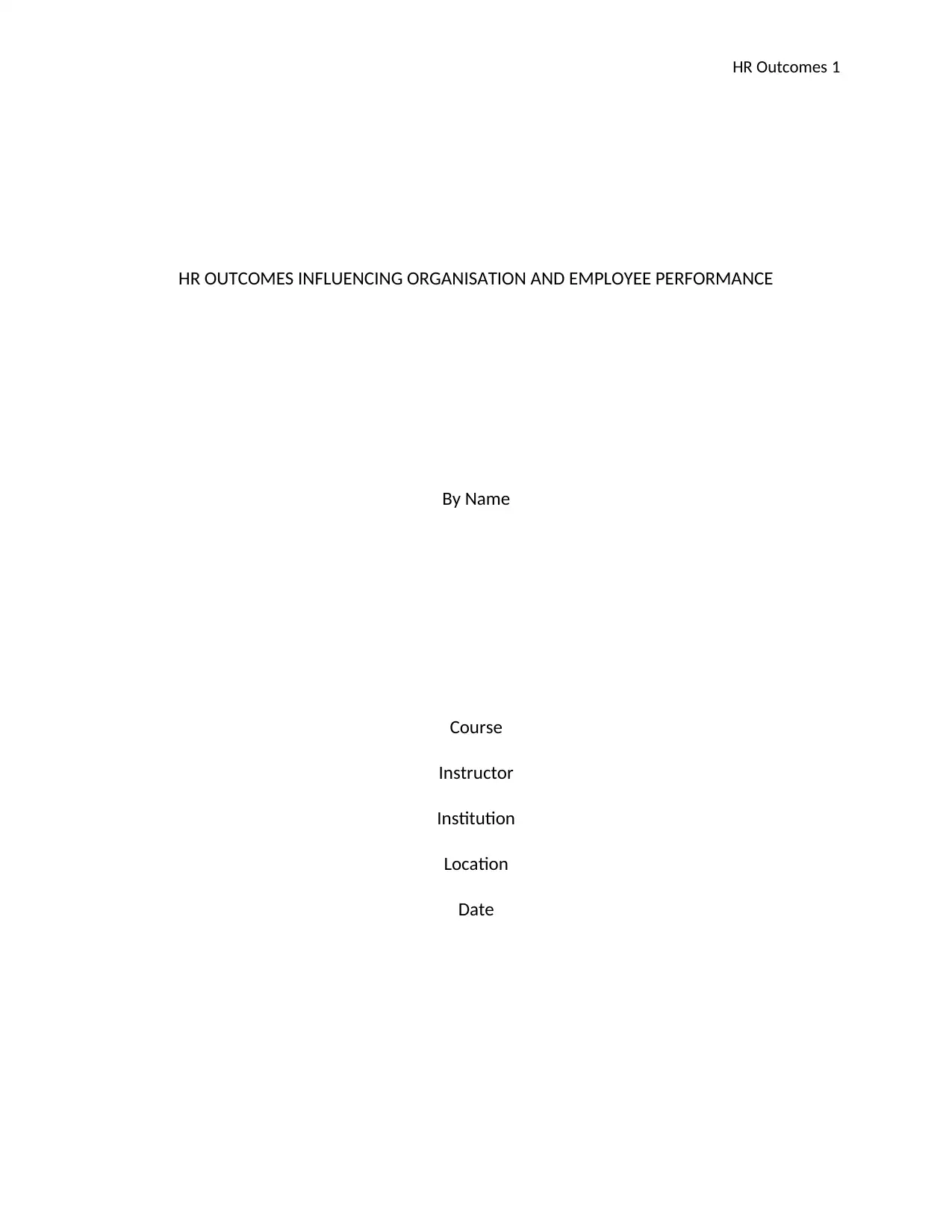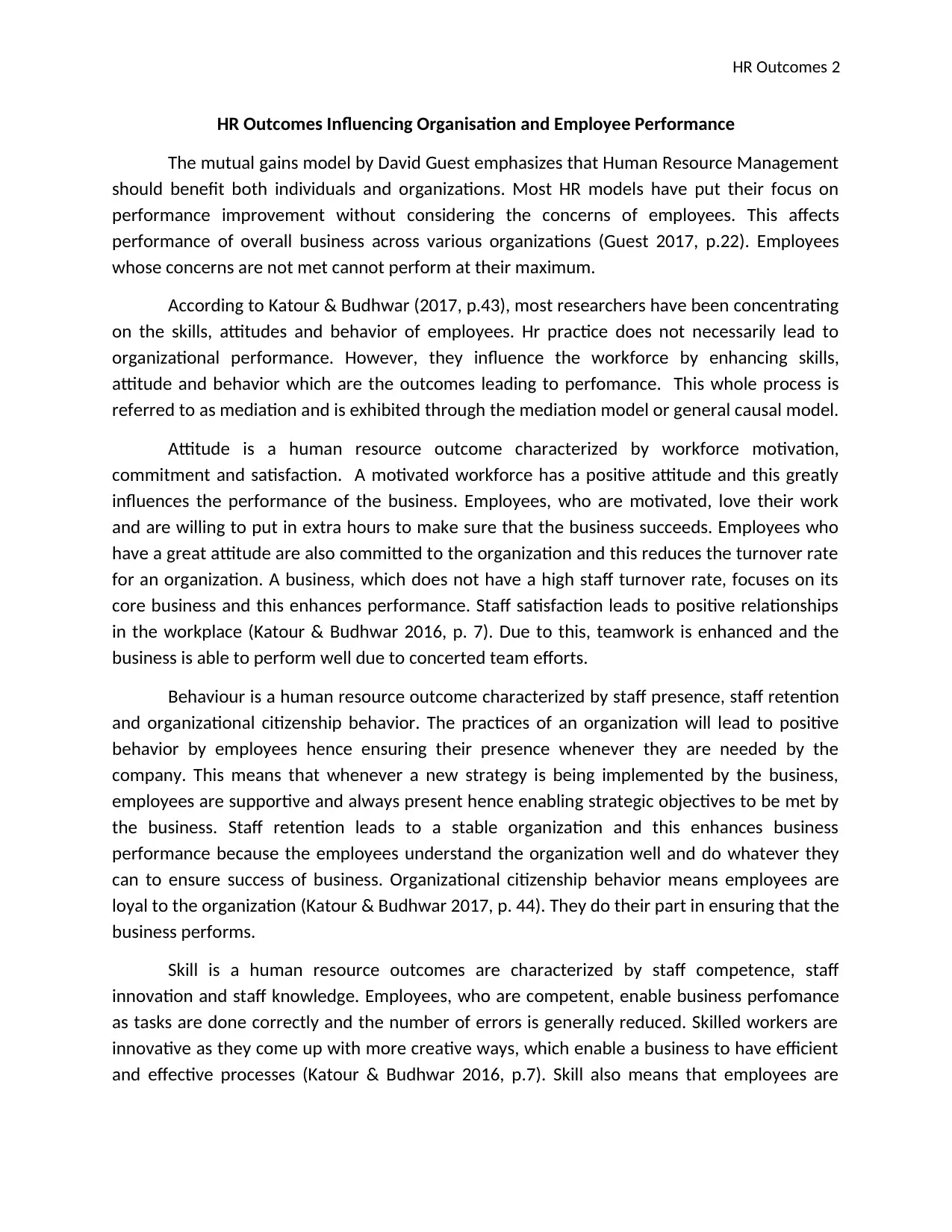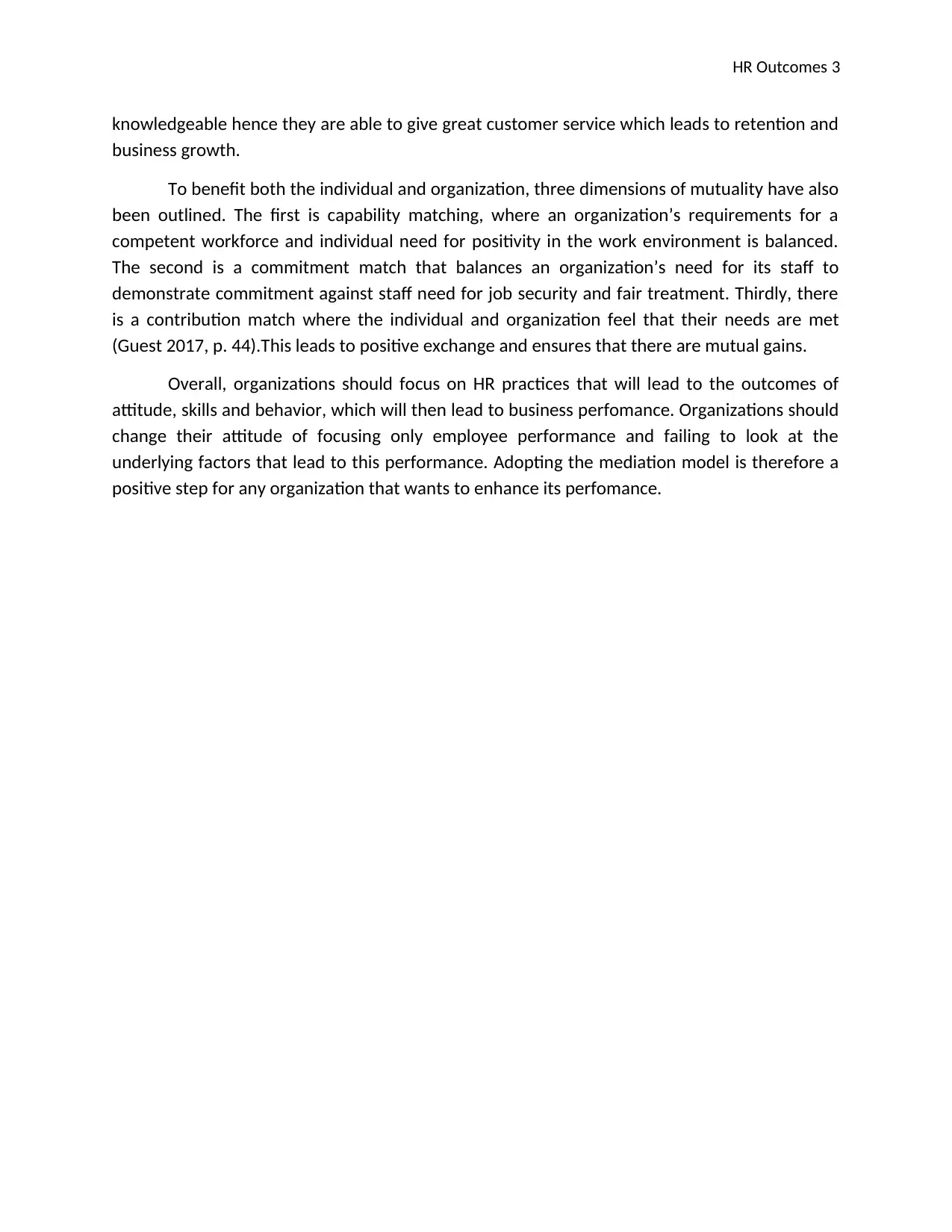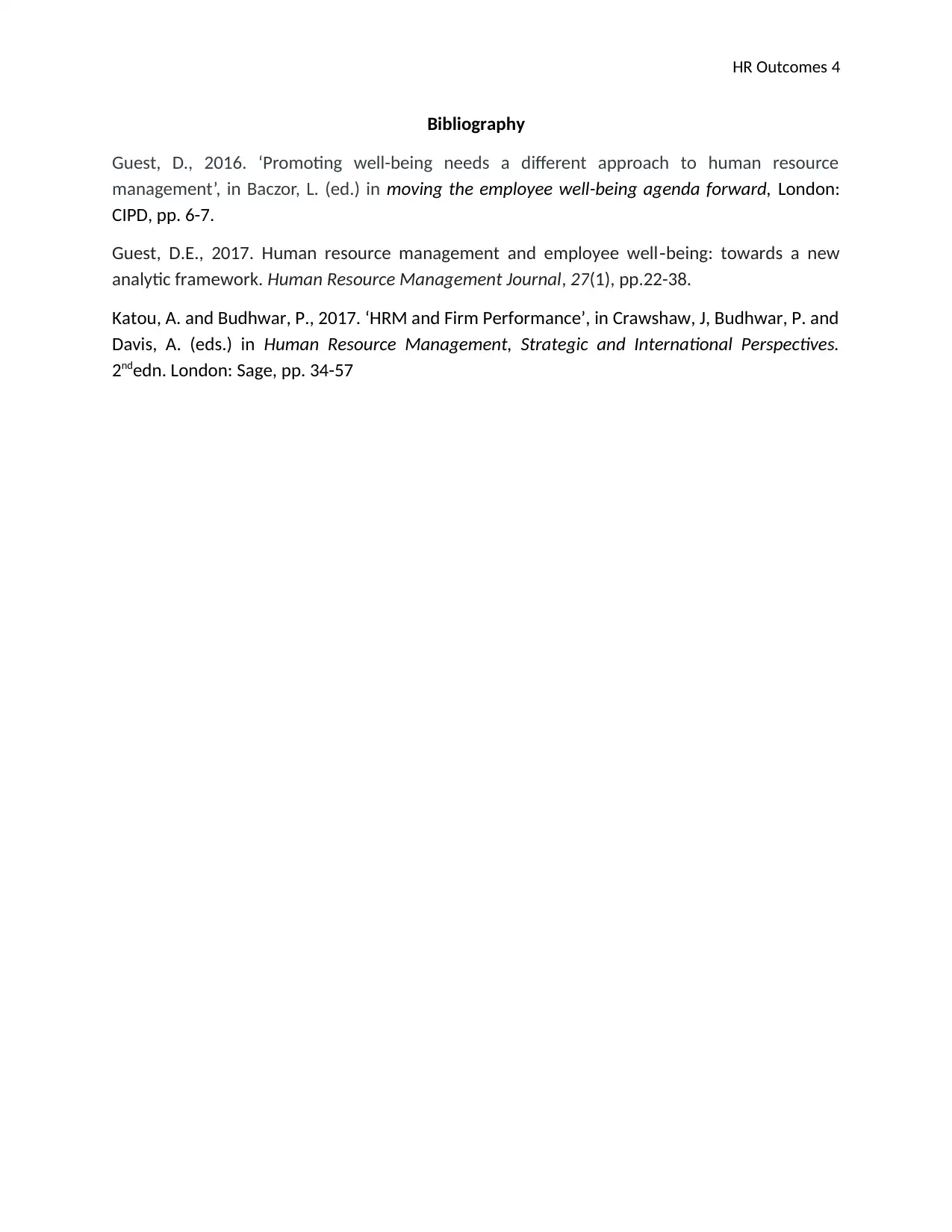Analyzing HR Outcomes: Organization and Employee Performance Impact
VerifiedAdded on 2020/05/11
|4
|852
|174
Essay
AI Summary
This essay delves into the critical relationship between Human Resource (HR) outcomes and their impact on both organizational and employee performance. It emphasizes the importance of the mutual gains model, highlighting how effective HR practices should benefit both individuals and the organization, moving beyond a singular focus on performance improvement. The essay explores key HR outcomes, including attitude, behavior, and skills, and how they mediate organizational performance. Attitude is characterized by motivation, commitment, and satisfaction; behavior by presence, retention, and organizational citizenship; and skills by competence, innovation, and knowledge. The essay also discusses the dimensions of mutuality, including capability, commitment, and contribution matching. The core argument is that organizations should prioritize HR practices that cultivate positive attitudes, enhance skills, and promote desirable behaviors to drive overall business performance. By adopting the mediation model, organizations can create a more supportive and productive environment for their employees, leading to improved business outcomes.
1 out of 4











![[object Object]](/_next/static/media/star-bottom.7253800d.svg)